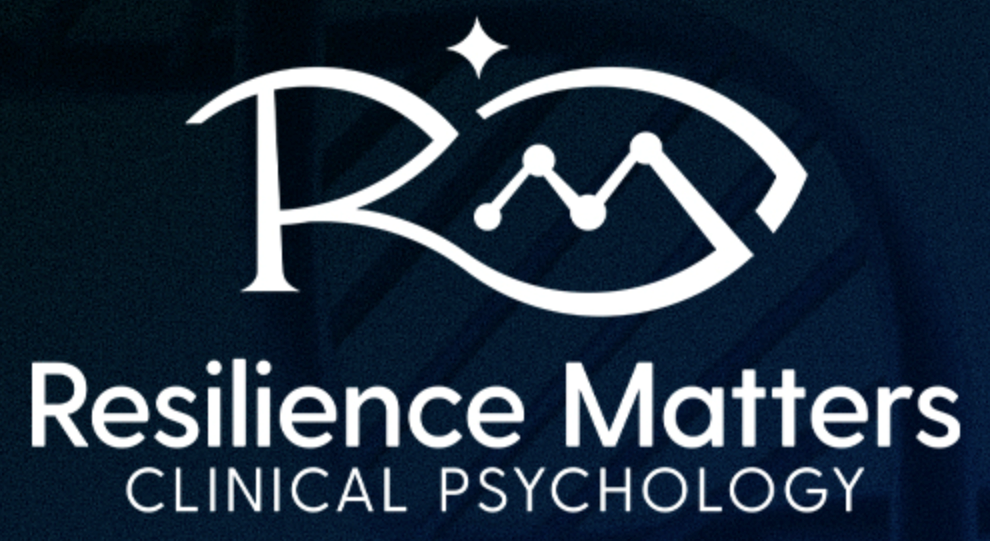Welcome to
Resilience Matters Clinical Psychology. A Mobile Service
Our mission is to help people build resilience and reduce the stigma of seeking psychological help

Convenient Mobile and Tele-Health Services
Welcome to Resilience Matters Clinical Psychology
Stuart Lokhee, Clinical Psychology Registrar, founded Resilience Matters Clinical Psychology in 2024. Backed by 25 years of law enforcement experience, work with Relationships Australia, and as a former teacher, RMCP is well positioned to support people across their lifespan.
Accessible options: telehealth, outdoor sessions, home visits, and traditional in-clinic therapy.
The cost of RMCP sessions may be Medicare-supported with a Mental Health Care Plan, reducing ‘out of pocket’ costs and making access to psychological care easier. Please note that we do not ‘bulk bill’.
Skilled Care: RMCP’s consultation team includes senior clinical, counselling, educational psychologists, G.P.s, and paediatricians.
Focussed Support for Parents and Carers: Our services aim to help parents and carers develop skills for managing parenting “bumps”.
For First Responders: RMCP offers confidential, supportive, trauma-informed, focussed mental health care for first responders. Our evidence-based approach helps clients address their concerns while building on their inherent strengths, such as personal meaning, values, and relationships.
Our mission is to help reduce the stigma of seeking help and to help people build their resilience.
Telehealth for Parents and Caregivers
Review past cognitive assessment reports to assist understanding of a child's cognitive abilities, behaviour, and support needs.
Strengthen parenting skills with tailored strategies for emotional, social, and academic growth.
Equip parents with skills to help children enhance their organisation and time management.
Telehealth for First Responders
Telehealth to support shift workers with trauma-Informed strength based care.
Access to sessions out of business hours.
Mobile Services
Flexible mental health support with mobile psychology services. Access focussed assessments and therapy, removing the hassle and time of travel.
Achieve your goals, from the convenience of your home or outdoors.
Accessible, effective, and convenient.
In-clinic Appointments for Children and Families
In-clinic appointments are available for children and parents at Sydney Children's Practice.
For appointments with Stuart, please contact the administration team at Sydney Children's Practice.
Psychology for Mental Health and Resilience
At Resilience Matters Clinical Psychology, we cover a wide range of common psychological issues, including depression, anxiety, panic, trauma, and the effects of ADHD and Autism. Our therapy is based on the latest evidence-based methods.
Hypothetical Case Examples and Psychological Help
FIRST RESPONDERS
Ruby, a 38-year-old Federal Agent with the Australian Federal Police, has been deployed overseas. For the past three months, she has faced increasing stress due to an allegation from her partner. Though no formal complaint was filed, the uncertainty has caused sleep issues, irritability, and fatigue, significantly affecting her well-being.
Ruby experienced persistent worry, heart palpitations, and neck tension. The stress drained her motivation and strained her relationships at work. She felt isolated, struggled with decision-making, and had trouble remembering passwords.
At her mates suggestion, Ruby sought help from a psychologist to manage her mental health. Concerned about confidentiality, she was reassured her privacy would be maintained, except in specific circumstances.
COGNITIVE ASSESSMENTS AND PAST DIAGNOSIS
Ronin, a 12-year-old with a vivid imagination and a passion for music, struggled to focus in school. He often daydreamed and got easily distracted, leading to frustration and avoidance of homework, especially math. His teachers also noticed these challenges.
Concerned, his parents sought a cognitive assessment, which revealed traits of ADHD. Though overwhelming at first, the results of the assessment provided some clarity. However, his parents had unanswered questions. They sought help to better understand strengths and challenges, which improved their communication with teachers and medical professionals.
Insomnia
Paris, a 17-year-old preparing for the HSC exams, had been struggling with insomnia for months, leading to concern from their parents. As exam pressure grew, Paris found it harder to fall asleep, lying awake with racing thoughts about assignments. Even when they did sleep, it was restless, leaving them exhausted each morning.
This ongoing sleep deprivation impacted Paris’s concentration and memory, making it difficult to focus in class and study effectively. Increased irritability and frustration were also noticeable, as academic and personal stress took a toll. Socialising became more challenging due to constant fatigue.
Worried about the impact on Paris’s well-being, their parents sought advice and attended sessions with a psychologist. These sessions provided them with strategies to better support Paris during this stressful period, helping to ease some of the pressures at home.
Anxiety
Chris, a 28-year-old police officer on a surveillance team, had been struggling with anxiety for months. The stress of shift work and family responsibilities left him feeling constantly overwhelmed and on edge.
He worried about daily tasks and future concerns, found it hard to relax, and his sleep was disrupted by racing thoughts. This affected his focus at work and his ability to enjoy time with his family.
Encouraged by his partner, Chris sought help from a psychologist, exploring Cognitive Behavioural Therapy (CBT) to manage his anxiety and regain balance in his life.
Depression
Ali, a 45-year-old Leading Senior Constable in a forensic unit, had been battling low mood and energy for four months. They felt persistently sad, hopeless, and frustrated, even with small tasks, and despite adequate rest, they remained fatigued and struggled to concentrate. Once-enjoyed activities, like fishing and family time, no longer brought joy, deepening a sense of disconnection.
Worried, Ali hesitated to seek help. Eventually, Ali visited his GP, received a Mental Health Care Plan, and contacted the NSW Police Welfare Unit, and discovered the job may cover the cost 'gap' for private psychology sessions. Ali sought out a psychologist experienced in understanding police work.
Convenient and Secure
Telehealth
Telehealth in Australia has revolutionised psychological services by offering convenient access to mental health professionals through video calls and phone consultations. The increased convenience and accessibility potentially enable more people to receive support. Evidence suggests that telehealth is an effective form of mental health care (Snoswell, C. et.al.,2023).
Home Visits or Outdoor Sessions
Home visits or outdoor locations require a secure and private location. RMCP's mobile services apply to the Inner West and Eastern Suburbs of Sydney and may be supported by Medicare rebates.
Telephone Therapy Sessions
Telephone psychology provides a structured and supportive psychological service; and is different to free telephone counselling services (Campos, 2009; Wang, 2000). Telephone therapy can also be subject to a medicare rebate.
Traditional in Person Clinical Services
For a face-face sessions, Stuart consults with clients at Sydney Children's Practice in Stanmore or Glebe, NSW.
www.sydneychildrenspractice.com.au
Contact
If you need help, you can contact your GP, Lifeline, or NSW Mental Health 24/7. If your or someone else’s life is in danger, please contact emergency services on 000.

